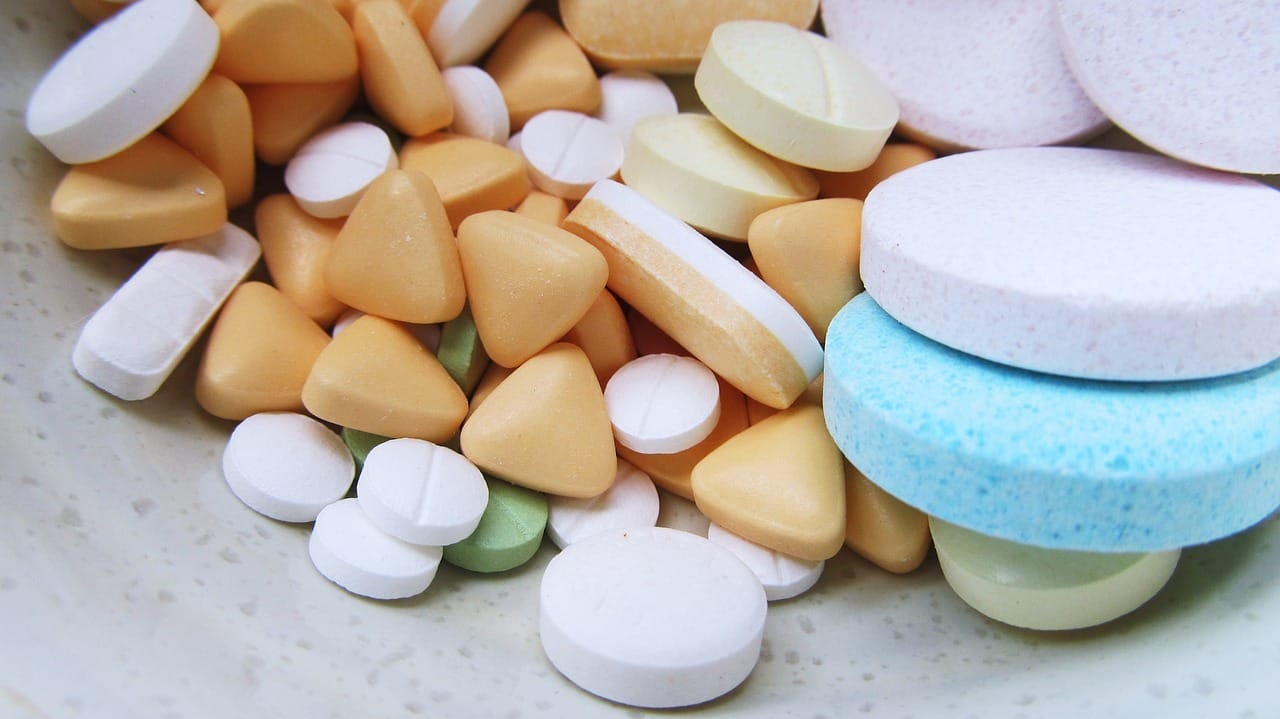- ThriveWire
- Posts
- Reverse Your Age: Proven Steps to Live Longer
Reverse Your Age: Proven Steps to Live Longer
Unlock the science-backed habits that can turn back your biological clock
Welcome back to ThriveWire!
Hey there! It’s great to have you back. Whether you’re here to uncover the latest health hacks, get inspired to make small changes, or simply stay ahead in the quest for a longer, healthier life, you’re in the right place.
This week’s edition is packed with fascinating insights and practical tips that I can’t wait to share with you.
Imagine if you could turn back your biological clock, enjoy the benefits of exercise without sweating, or even make time feel like it’s slowing down. Sounds intriguing, right? These are just a few of the exciting topics we’ll dive into this week.
Let’s get into it!
Here’s what’s inside:
🧬 Can You Reverse Your Biological Age? A groundbreaking study suggests it’s possible.
🤔 What’s Happening This Week?
The Weird Habits of Centenarians.
ApoB: The Heart Test that could save your life.
6 Habits to Reverse Aging.
The 10 Levels of Longevity.
Why Time Feels Faster as We Age and how to slow it down.
💊 Exercise Mimetics: Exercising Without Exercise? Exploring the latest research on compounds that mimic the benefits of physical activity.
Can You Reverse Your Biological Age? The Science Says Yes 🧬

What if you could actually turn back the clock, not just look younger, but be biologically younger? A groundbreaking pilot study suggests it’s possible, showing that targeted changes to diet, exercise, sleep, and stress management can reverse biological aging in as little as 8 weeks.
The Study: Reversing the Aging Clock
In a randomized controlled trial, 43 men aged 50-72 were split into two groups: one followed a structured 8-week program; the other didn’t change their lifestyle. The intervention included:
A nutrient-dense, plant-forward diet with intermittent fasting.
Daily probiotics and polyphenol-rich supplements.
Moderate exercise (30 minutes, 5 days per week).
Stress-reducing breathing exercises twice daily.
Prioritizing 7+ hours of sleep each night.
The results? Participants in the intervention group showed a 3.2-year reduction in biological age, as measured by the Horvath DNA methylation clock, a gold standard for assessing cellular aging. This wasn’t just a small trend; the results were statistically significant.
Why DNA Methylation Matters
DNA methylation is a process that regulates gene expression, essentially controlling which genes are “on” or “off.” As we age, methylation patterns shift, turning on inflammatory genes and silencing protective ones. These changes are closely linked to chronic diseases like cancer, heart disease, and dementia.
The good news? DNA methylation isn’t set in stone. It can be influenced by lifestyle factors like diet, exercise, and stress management. This study demonstrated that making targeted, sustainable changes can reset methylation patterns to a younger biological age, improving cellular function and health.
What Can You Learn From This Study?
The interventions used in the study are neither extreme nor inaccessible: they’re practical, evidence-based habits you can adopt at your own pace. Here’s what made the difference:
1. Nutrition: Fuel Your Cells
Plant-Centered Diet: Prioritize leafy greens, cruciferous vegetables (like broccoli and cabbage), and colorful produce packed with polyphenols.
Methylation-Supporting Foods: Include liver, eggs, pumpkin seeds, green tea, turmeric, rosemary, and berries - all rich in nutrients that regulate DNA methylation.
Intermittent Fasting: Limit eating to a 12-hour window (e.g., 7 AM–7 PM) to support metabolic health and cellular repair.
Probiotics: Daily probiotics, like Lactobacillus plantarum, promote gut health, which influences methylation pathways.
2. Exercise: Move With Purpose
Aim for 30 minutes of moderate-intensity activity (e.g., brisk walking, cycling) 5 days a week.
Resistance training helps maintain muscle mass, which declines with age and is crucial for overall health and longevity.
3. Stress Management: Calm the System
Practice deep breathing or relaxation techniques twice a day. This isn’t just good for your mind, it helps reset stress-driven aging pathways linked to inflammation and accelerated methylation aging.
4. Sleep: Prioritize Restorative Sleep
Aim for a consistent 7+ hours of quality sleep each night to support cellular repair and recovery.
Why This Matters for You
The results of this study are a game-changer: they show that age is not just a number on your birth certificate, it’s something you can influence. While larger trials are needed to confirm these findings, the implications are profound.
This isn’t about quick fixes or magic bullets. It’s about using science-backed habits to regain control over the aging process and improve your health at the most fundamental level: your DNA.
Take the First Step
The interventions that reversed biological age in this study are achievable for anyone. Start where you are, whether that means adding a serving of greens to dinner, taking a brisk walk, or carving out 5 minutes to breathe deeply. Small, consistent changes can reset your body’s aging clock, potentially adding healthier, more vibrant years to your life.
Age is just a number, but your biological age is one you can rewrite.
What’s Happening This Week? 🤔
🐢 The weird habits of people who live to 100+ years old - A fascinating look at the habits of centenarians and lessons from nature’s longest-lived creatures. Discover how diet, purpose, and a deliberate pace contribute to extraordinary longevity.
💓 ApoB: The Must-Have Test for Lifelong Heart Health - Why settle for standard cholesterol tests when the ApoB test offers a clearer picture of heart disease risk? Learn how this affordable test can safeguard your health for decades.
🔑 6 Simple Habits to Reverse Aging, According to a Longevity Doctor - Dr. Michael Roizen, who says he’s reversed his biological age by 20 years, recommends these essentials: walk more, eat salmon and avocado, build strong relationships, train your brain with games, take a multivitamin, and don’t skip your flu shot. Small changes, big impact!
🌀 The 10 Levels of Longevity Explained - From lifestyle tweaks to futuristic therapies, the "Ten Levels of Longevity" framework maps the path to extending healthspan and lifespan. Levels range from foundational steps like diet and exercise (Level 1) to advanced interventions like systemic aging reversal (Level 8).
⏳ Why Time Feels Faster as We Age and How to Slow It Down - Discover the fascinating science behind why years seem to fly by as we grow older and learn practical tips to make your days feel longer and more meaningful.
Exercise Mimetics: The Promise of Exercise in a Pill? 💊

For those who struggle with physical activity, the concept of exercise mimetics, compounds that replicate some of the key physiological benefits of exercise, offers an intriguing frontier.
While these substances aren’t a replacement for the holistic gains of regular movement, they could provide meaningful support to individuals with mobility challenges or those looking to enhance their existing fitness routines.
Key Compounds Under Investigation:
Metformin: Primarily prescribed for type 2 diabetes, metformin has shown early promise in preclinical studies as a metabolic enhancer, potentially emulating certain exercise-like benefits on blood glucose regulation and insulin sensitivity.
Resveratrol: Naturally occurring in red wine and grapes, resveratrol is being studied for its potential anti-aging and exercise-mimicking effects, including enhanced mitochondrial health and improved cellular energy management.
AICAR (Aminoimidazole Carboxamide Ribonucleotide): This molecule boosts AMPK activity, a crucial enzyme in cellular energy pathways. Early research suggests AICAR could increase endurance capacity and support muscle energy utilization, mirroring some aspects of aerobic training.
Nicotinamide Riboside (NR) & Nicotinamide Mononucleotide (NMN): These NAD+ precursors are under investigation for their ability to rejuvenate cellular energy production and mitochondrial function, potentially replicating some of the metabolic advantages gained through regular physical exercise.
Important Considerations:
While the science is advancing, more human clinical trials are needed to fully understand the efficacy, safety, and long-term effects of exercise mimetics.
These compounds are not a substitute for a balanced lifestyle that includes regular physical activity, nutrient-dense foods, and adequate rest.
Always consult a healthcare professional before adding any new supplement or compound to your regimen, especially if you have underlying health conditions.
Thanks for reading this week’s ThriveWire! 💡
I hope you found something here that sparks inspiration for a small step forward on your journey to better health. Longevity isn’t about perfection or quick fixes; it’s about those steady, intentional choices that shape our future selves.
Got a favorite tip from this week’s insights? Let me know! And if ThriveWire brought value to your week, don’t keep it to yourself, share it with someone who might need a little inspiration on their own health journey.
“Every moment is a fresh beginning.” - T.S. Eliot
Stay healthy,
Andrew Courtney
Founder, ThriveWire
How did we do with todays Newsletter?Your feedback helps us make ThriveWire better. |
Disclaimer: The information provided in ThriveWire is for educational purposes only and is not a substitute for professional medical advice, diagnosis, or treatment. Always consult your healthcare provider before making changes to your diet, exercise routine, or health regimen.